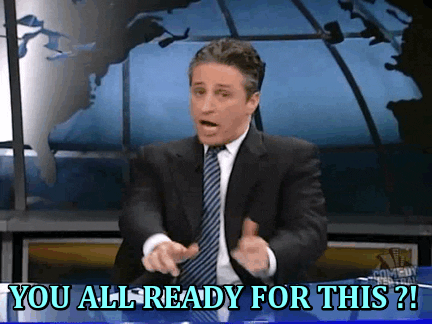Is it right to say that your group is all ready to leave for your trip, or are you already to take your upcoming English exam? For those whose first language isn’t English or are just starting to learn, you may find that some English homonyms are difficult to tell apart and figure out which one is the one to use.
Don’t worry, even some native English speakers mix up the homonyms when put into writing. It’s even more difficult when both homonyms are grammatically correct in their own context, so some word processing programs like Microsoft Word aren’t going to help correct you. So, when it comes to the words “already” and “all ready,” which one of these words is the right one to use at certain contexts? Let’s find out.
All Ready vs. Already
“All ready” and “already” are homophones, meaning they sound the same when spoken out loud, but that doesn’t mean they are interchangeable. When speaking, you can get away with not knowing the difference as the person you are speaking to will understand your message regardless of the word you meant to say. But when putting it into writing, you need to know when it is appropriate to use these words.
Already
“Already” is an adverb, which are words that describe adjectives (e.g. red, ugly, three), verbs (danced, typed, climbing), and other adverbs (abruptly, immediately, playfully). It’s used to describe a certain time condition that occurred before, has happened now, or has been completed at the time the speaker speaks.
For example, if a child asks her mother for food just half an hour after they had just eaten lunch, the mother can say, “Are you hungry already? We just ate!” The word “already” here suggests that it is too early for the daughter to be thinking about food as her hunger was just sated.
Or, in terms of a condition that has already been completed, let’s say you ask a friend to watch a movie with you, but they decline by saying, “I’ve already seen it.” This means that the action has already been completed in an earlier time.

Or, if you’re talking about a current condition, say that you and several others have been waiting in line in a government office for over an hour when, suddenly, a person cuts in line and demands immediate service. You, or someone who has been waiting much longer, can get frustrated and tell that person “I’ve been waiting an hour already!” This means the speaker has been waiting for that amount of time and is still doing so.
You can also use “already” to exclaim “Enough already!” or “Knock it off already!” In both cases, you are telling a person to back off and stop what they are doing at that moment.
The word “already” can be replaced by synonyms such as by now/then, by this/that time, so far, before then, earlier on, and so many other synonyms, but sometimes using another term can be awkward or not fitting in certain contexts, depending on what you’re trying to say.
All Ready
“All ready,” however, isn’t an adverb, but a phrasal adjective used to describe a collective group. A phrasal adjective is two or more words used to modify a noun. Some examples of these include an “ice-cold” drink, a “poorly run” business, or a “four-story” building.
Saying something or a group of people are “all ready” means that everyone are collectively prepared. If you and a group of five others are planning a road trip, you can say you are “all ready” to go if everyone is ready to get into the car and leave without delay. If you were to write “our group is already to go,” that wouldn’t make much sense.

Technically, you could say “our group is already all ready,” meaning at that point in time you and your friends are collectively ready to leave, but when spoken out loud or written, it sounds and looks awkward. So, it’s best to say “all ready” on its own.
“All ready” can be used in other contexts that involve several people or things that require collective preparation. A nanny can tell the children’s parents that the children are “all ready” for bed and are going to say good night. A cosmetics manufacturer can tell a beauty vlogger that their product line has been completed and are “all ready” for launch. And if you’re going preparing to leave for work and are told to hurry, you can say that you only need to fix your hair before you’re “all ready.”
If you’re writing and confused between “all ready” and “already,” take note of the word “all” in “all ready.” It’s a collective word used to talk about a whole group. From there, you can remember that “all ready” refers to a collective group that is ready, while “already” is used to describe a point in time. While you can get away with using “all ready” and “already” interchangeably while speaking because of their homophonic characteristics, it’s best to distinguish the two whether you’re writing or speaking to help you remember which is which.
















